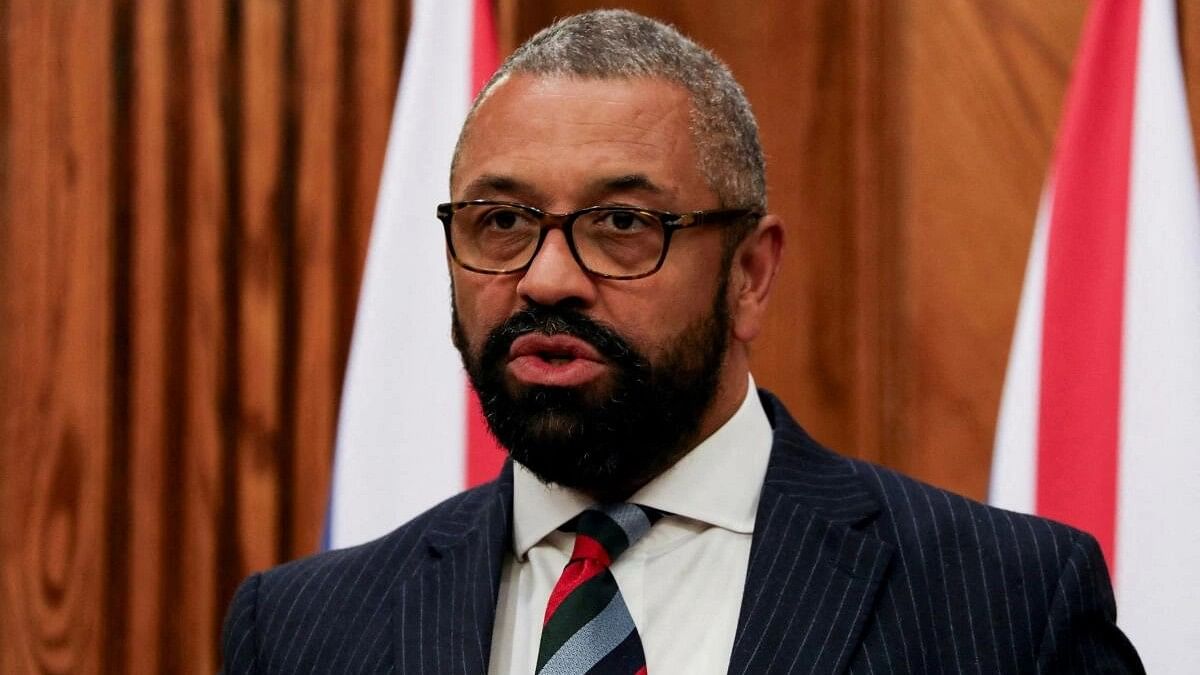
British Foreign Secretary James Cleverly
Credit: Reuters Photo
British Foreign Secretary James Cleverly will make a long-awaited trip to China on Wednesday in a sign that relations between the countries are normalising after years of tensions over security concerns and alleged human rights abuses.
Cleverly will meet his Chinese counterpart Wang Yi and Vice President Han Zheng, marking the most senior visit to China by a British minister in five years.
Britain is trying to improve ties with China after the relationship sunk to its lowest point in decades under former Prime Minister Boris Johnson, when London restricted some Chinese investment over national security worries and expressed concern over a crackdown on freedoms in Hong Kong.
Cleverly has argued for a new British policy of engagement with China, saying it would be a mistake to try to isolate the world's second-largest economy and China's help is needed in areas such as climate change and economic instability.
Before his arrival in China, Cleverly told reporters he would discuss issues ranging from climate change to the Ukraine war and areas where Britain has "strong disagreements" with the Chinese government such as freedoms in Hong Kong and Beijing's sanctions against some British politicians.
"We will be discussing how we can work together and where the relationship can be more productive," Cleverly said. "I'll be discussing issues like China's posture in the region, about the Russian invasion of Ukraine, and what can be done… bring that to an appropriate conclusion."
Chinese foreign ministry spokesperson Wang Wenbin said it is "in the common interest" of both nations' peoples to develop relations.
Changing British policy
Cleverly was forced to postpone a visit previously scheduled for July after the mysterious disappearance of then Chinese foreign minister Qin Gang.
The last time a British foreign minister visited China was when Jeremy Hunt travelled to the country in 2018.
Britain has made major shifts in its approach towards China in the past decade, moving from saying it wanted to be China's greatest supporter in Europe to being one of its fiercest critics, and now again trying to improve relations.
Under Johnson, Britain attacked China's crackdown on freedoms in Hong Kong and Xinjiang, banned Huawei from Britain's 5G network, and was frustrated by the perception that China did not tell the whole truth about the origins of the coronavirus pandemic.
Rishi Sunak, who took over as prime minister last year, said in his first major foreign policy speech that the so-called "golden era" of relations with China was over, but defended the importance of talking to Beijing.
When asked if Sunak was hoping to meet Chinese President Xi Jinping at the G20 summit in India next month, Sunak's spokesperson said officials were still arranging his meetings but it was important to engage with China while "standing up for our values and protecting our interests".
Sunak is under pressure from some lawmakers in Britain's parliament, including the former Prime Minister Liz Truss, who want London to toughen its policy on China and to declare the country a threat to British national security.
But London has also been looking to build economic ties with faster growing economies since leaving the EU in 2020.
The British government is attempting to strike a complex balance between trying to neutralise security threats posed by China — such as joining the United States and other allies in banning some technologies — and maintaining or even enhancing engagement in some areas such as trade, investment and climate change.